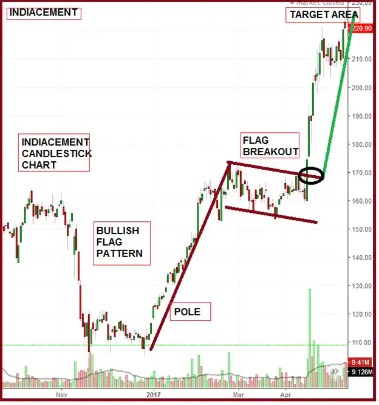A freelancer is similar to an independent contractor in that they are also hired to complete a specific project. This means they might not be available to work on your project right away. You can consider working with any local Polish bank to pay your contractors. However, some Polish banks may not be willing to work with a company that is not registered in Poland. So, if your contractors don’t mind losing approximately $20 to $40 or more in each remittance, they may not be keen on SWIFT. Moreover, the fees charged by banks aren’t consistent, and your contractors might find it frustrating to have varying fees charged to them each time you send them money.
How do I accept payments as an independent contractor?
- Paper Check. If you have a traditional or manual payroll system, you may feel most comfortable using traditional paper checks to pay your freelancers.
- Direct Deposit.
- Online Payment Systems.
- Wire Transfer.
- Freelance Job Sites.
Whatever your strategy may be, it is vital that you correctly pay your contractors for the work they perform. Pay workers in local currency where required by law or when the contractor requests to provide a great experience. If your contractor requests a non-local currency, like US dollars, be sure you can legally pay your contractor in that currency before agreeing.
Independent contractors vs. remote employees
For instance, in France employers social security is 45-47% plus EOR fees. But also, contracting is strongly regulated and the penalties are pretty harsh. Beyond compensation, this also makes remote companies less competitive versus a local employer that can offer full, local benefits. The intuitive system allows you to log your hours as you work and access them from anywhere with an internet connection.
- This could limit your opportunities to engage with partners and investors if association with your brand becomes problematic.
- However, if you don’t manage contractors correctly, the penalties of misclassification more than offset those savings — and those penalties are not only limited to monetary fines.
- For instance, in France employers social security is 45-47% plus EOR fees.
- Some companies may classify workers as independent contractors, while others may consider them part-time or even full-time employees.
- To do so, start by determining the agreed-upon payment rate for the job in the SoW.
- As outlined earlier, EOR providers such as Workpay helps employers legally hire remote employees and independent contractors in different countries.
Deel handles the currency conversions, ensuring contractors receive payments in their local currency while companies have clear visibility into the exchange rates and fees involved. https://bookkeeping-reviews.com/how-to-pay-independent-contractors-and-remote/ If you handle things yourself, you will need a way to collect and manage invoices. This means staying up to date with any local laws that may affect your contract workforce.
How to Set Up Remote Payroll and Taxes in 6 Steps
The contract should establish the scope of work, pay rate, and pay cycle. Your contract should also outline protections for your intellectual property, including who owns the work the contractor produces on your behalf. Most of them handle multiple countries and carry (some) risk for you, making you locally compliant. For instance, local Terminations can be hairy, they help you navigate it. Meaning, your company has a strong culture of employment and retention, building a long term relationship with the worker. Most companies don’t intend to treat international employees as second class citizens, unfortunately this happens often.
Independent contractors also offer businesses flexibility in terms of the hours they work and the days they work. Independent contractors are not bound by the traditional nine-to-five schedule, which means they can complete projects outside of normal business hours if necessary. It could be that part-time job at the local ice cream shop during the summers or that first job after college graduation. An employee is somebody who works for a company in exchange for a salary, benefits, and sometimes equity.
Horizons Remote Contractor and Remote Employment Solutions
For more information, see Remote’s guide to contractor misclassification. In general, the classification of employee or contractor depends on the level of control the company has over the worker with respect to factors such as working hours, working location, equipment, etc. The more the company has a say in where or how a worker completes their tasks, the blurrier the line between contractor and employee becomes. Read our guide to the dangers of contractor misclassification for more information.
An independent contractor must fill out the W-9 form to confirm their name and Taxpayer Identification Number. You don’t need to submit W-9 forms to the IRS — a W-9 form is primarily for verification purposes and future references. The idea looks good on paper, and for most freelancing sites, the process is secure and painless. You deposit money into your employer account, hire a contractor, and then the platform pulls the money from you to the freelancer once the job is finished.
Paying remote workers can be a complex task, especially concerning tax-related matters. As an employer, you’re responsible for ensuring that all taxes are https://bookkeeping-reviews.com/ paid correctly and on time. This section will help explain what’s involved with paying taxes on behalf of remote employees and how to do it correctly.
Companies can onboard contractors through the platform, manage contracts, automate invoices, and facilitate secure payments. You can set up auto-payments for your team, make off-cycle payments to contractors, and use mass pay to pay all contractors simultaneously with direct debit. Deel provides a streamlined solution for paying international independent contractors.
Therefore it may not be the ultimate choice for onboarding remote workers for most employers. Setting up a subsidiary or a local entity in DRC gives employers the legal authority to work in the country. It also allows an employer to hire employees in DRC, set up a local payroll, or disperse other employee benefits. Some payroll services have started offering payments directly to digital wallets through third-party providers such as PayPal, Apple Pay, Venmo, CashApp, and more.
- Contractors work for themselves, usually with their own equipment, in their own spaces, and on their own time.
- Hiring independent contractors also means paying close attention to classification, compliance, and risk management.
- Some programs will disburse the payment through direct deposit or another digital method at the end of the pay cycle.
- More importantly, it is considered a criminal offense if the IRS discovers that you misclassified your workers on purpose.
- Both parties will pay 6.2% of the employee’s wage for social security and 1.45% for Medicare.
Most of the time, independent contractors already have the necessary skills to complete your project, which means you don’t have to spend precious time on training. Contractors immediately increase your bandwidth without the extended onboarding period required for employees, allowing you to scale up or down depending on the situation. Contractors can also be very cost effective, because they don’t require benefits packages, paid time off, or company-withheld taxes.























